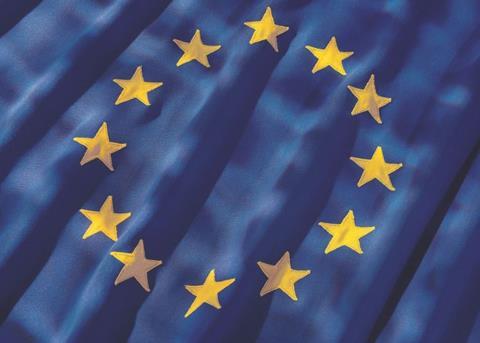The meat industry has responded to the decision for the UK to leave the European Union, with key figures urging for calm during a period of uncertainty.

The decision to leave the EU was voted with a 51.9% majority, with the pound falling to its lowest level against the dollar since 1985 as the markets reacted to the results.
The referendum on Thursday 23rd June saw more than 30 million people vote, a 71.8% turnout, which is reported to be the highest turnout at a UK-wide vote since 1992.
A statement from the International Meat Trades Association (IMTA) said: “It will be vital to all member companies that access to imported meat sources as well as export markets is maintained. Therefore we will be looking for the UK government to ensure continuity of trade in the next two years.
“Around 45% of meat and meat products are imported. Industry and UK consumers expect access to high quality meat products, and require stability and a continued supply from all sources including the EU. This is crucial in order to keep the nation fed, to ensure continued access to supplies for the retail, foodservice, manufacturing and wholesale sectors.
“Around 24% of British meat is exported to markets in the EU and globally. Continued access to these markets is critical to ensure full support for the British farmer and the meat sector as a whole enabling us to export our high quality UK meat. It is vital for the economy and employment that we continue to have trade in both directions.
“It is essential that before the UK government navigates through complex trade regulations and makes any decisions or changes which will have implications for trade that the industry is properly consulted to ensure the livelihood and longevity of Britain’s meat trading industry is front of mind and warned of any changes.
A spokesman from the British Meat Processors Association (BMPA) said: "The decision this morning will lead to a period of significant uncertainty. The BMPA will be working hard to ensure the interests of the British meat industry are recognised over the next few months as the new relationship with Europe starts to emerge."

Agriculture and Horticulture Development Board’s (AHDB) chief executive, Jane King, commented: “The AHDB focus remains unaffected by the decision to leave the EU - to equip levy payers with the tools to become more competitive and sustainable.
“Amongst other issues, the decision to leave brings to the fore the need for UK Government to target the best new trading relationships we can for UK food and agriculture both with the EU and other countries.
“AHDB has the skills and expertise to contribute to this work in areas such as market prioritisation, market access negotiations and facilitating relationships between UK exporters and overseas buyers. We stand ready to support the industry in identifying how it can best compete outside the EU.
“These issues will take time to resolve, but AHDB will play a full part in ensuring UK agriculture is a leading player on the global stage.”
Chairman of Hybu Cig Cymru – Meat Promotion Wales (HCC) Dai Davies said: “Hybu Cig Cymru’s focus remains on securing the best deal for levy-payers, and a sustainable future for the Welsh red meat industry.
“The result will undoubtedly lead to a period of uncertainty; HCC has an important role to play in mitigating any instability and ensuring the maintenance of current trade.
“Our essential task in the long term is securing the best trading deals for Wales – maintaining our existing export markets in Europe, and continuing our work in developing new trading relationships further afield," Davies said.
“HCC stands ready to support Welsh farming and the whole supply chain through this period of change.”

The National Farmers Union (NFU) president, Meurig Raymond, added: “The vote to leave the European Union will inevitably lead to a period of uncertainty in a number of areas that are of vital importance to Britain’s farmers.
“We understand that the negotiations will take some time to deliver but it is vital that there is early commitment to ensure British farming is not disadvantaged. It is vital that British farming is profitable and remains competitive, it is the bedrock of the food industry – Britain’s largest manufacturing sector.”
Following the outcome, the NFU has announced an extraordinary meeting of NFU council – its governing body. The meeting will take place on Friday 1st July.
In Scotland all 32 local authority areas returned majorities for remain, a 62% majority overall.
Jim McLaren, chairman of Quality Meat Scotland (QMS), said: “Quality Meat Scotland remains 100% committed to its core remit of working to shape a prospering and sustainable Scottish red meat industry.
“While there are still a great many unknowns in terms of the full implications of today’s outcome, as an organisation we are in a strong position to adapt and continue to delivery for our industry in the changing environment in which we will be working. In the coming weeks the QMS board will be considering our response to the key implications of this week’s decision and we will also be working closely with other organisations in our industry throughout the UK.
“As an industry in Scotland we have worked hard to build strong brands and to produce top quality products which have earned an iconic global reputation. These well-earned, robust foundations, including long-established relationships in export markets around the globe, ensure we are very well-placed to adapt and grow in the new political landscape as it unfolds.”
NFU Scotland president, Allan Bowie, reacted: “The dramatic events of the past few hours will mark a period of great uncertainty for Scotland’s farmers and crofters. What is also clear is that the role of the Union in representing our members’ views and protecting their interests will rarely have been more important in our 103-year history.

“NFU Scotland will be at the centre of any discussions on new arrangements for our food and farming sector. There is a need for these discussions to commence quickly so that the many businesses who benefit from support from the CAP and value the markets we have established for our produce in Europe and further afield can plan for the future. Significant sectors of our industry are also very reliant on a workforce sourced from other parts of the EU and we need to establish any implications for their businesses."
A comment from the Scottish Association of Meat Wholesalers (SAMW) said: "Throughout the inevitable period of uncertainty which will follow the UK's vote to leave the European Union, we are confident that the quality of Scotland's red meat industry provides our members with a strong foundation on which to build future business.
The Provision Trade Federation (PTF) has also released a statement from its director general Andrew Kuyk saying: “During the coming months, PTF will be doing its utmost to protect and promote members’ interests. It will also be vital for us to remain engaged with our counterparts in other EU trade associations where we have common cause in ensuring that trade continues to flow unimpeded.
“We will also be working with our wide range of contacts in Government and elsewhere to make sure we get the best possible outcomes whatever happens.”
This story was originally published on a previous version of the Meat Management website and so there may be some missing images and formatting issues.












